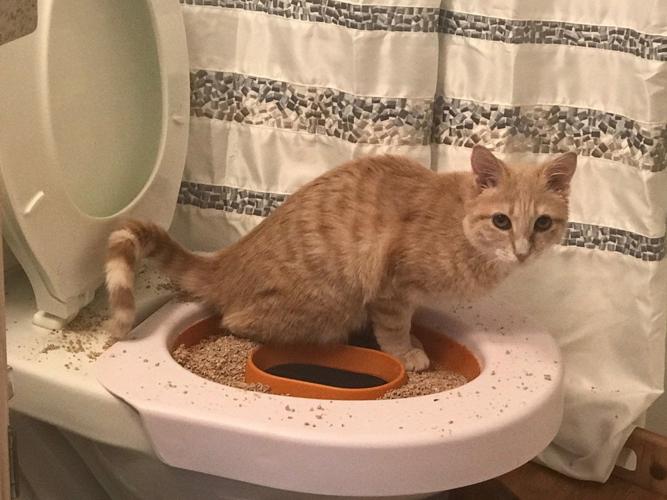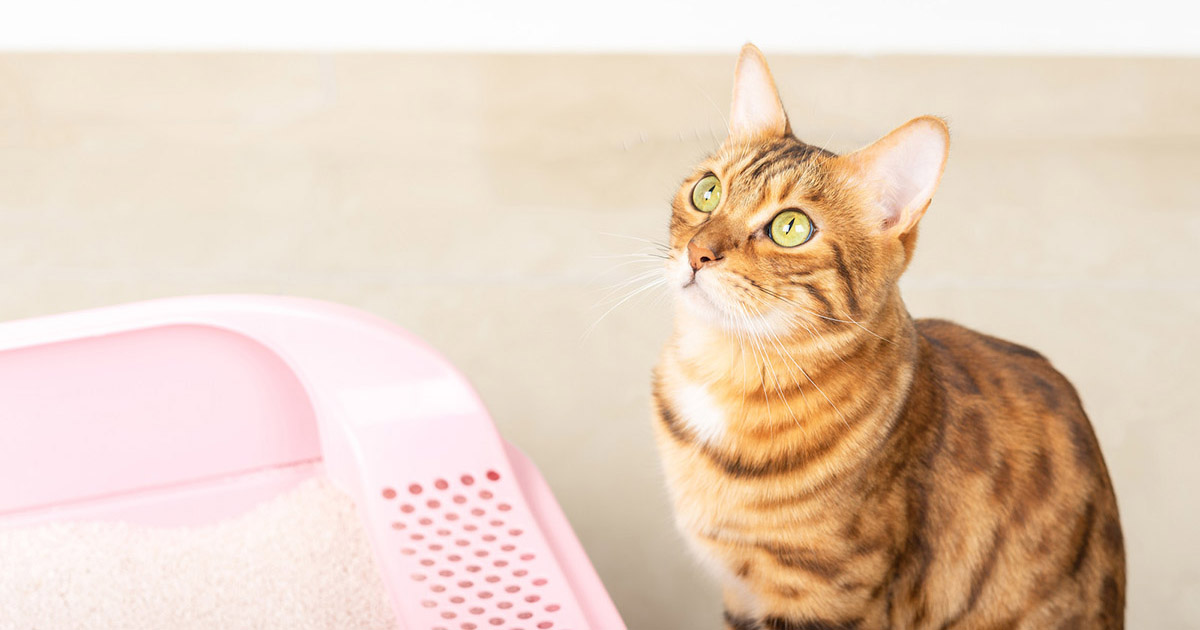We have stumbled upon this article relating to Don’t flush cat feces down the toilet listed below on the internet and reckoned it made perfect sense to discuss it with you on this site.

Intro
As feline proprietors, it's vital to be mindful of how we dispose of our feline good friends' waste. While it may appear convenient to flush cat poop down the bathroom, this method can have damaging effects for both the environment and human wellness.
Ecological Impact
Flushing pet cat poop introduces harmful microorganisms and parasites right into the water, posing a substantial risk to water ecosystems. These pollutants can adversely impact aquatic life and compromise water top quality.
Health and wellness Risks
Along with ecological worries, flushing feline waste can also position health and wellness risks to human beings. Cat feces may include Toxoplasma gondii, a bloodsucker that can cause toxoplasmosis-- a possibly severe health problem, specifically for pregnant women and individuals with weakened immune systems.
Alternatives to Flushing
Fortunately, there are more secure and extra responsible methods to take care of feline poop. Think about the following choices:
1. Scoop and Dispose in Trash
One of the most typical method of taking care of feline poop is to scoop it right into a biodegradable bag and toss it in the trash. Be sure to make use of a devoted clutter scoop and throw away the waste quickly.
2. Use Biodegradable Litter
Choose naturally degradable feline trash made from products such as corn or wheat. These clutters are eco-friendly and can be safely thrown away in the garbage.
3. Bury in the Yard
If you have a yard, take into consideration hiding cat waste in a marked area away from veggie gardens and water resources. Make sure to dig deep adequate to prevent contamination of groundwater.
4. Set Up a Pet Waste Disposal System
Purchase an animal waste disposal system particularly developed for cat waste. These systems utilize enzymes to break down the waste, reducing odor and ecological influence.
Conclusion
Accountable family pet possession extends beyond supplying food and sanctuary-- it additionally involves appropriate waste administration. By avoiding purging pet cat poop down the bathroom and selecting alternative disposal methods, we can minimize our environmental impact and shield human health and wellness.
Why Can’t I Flush Cat Poop?
It Spreads a Parasite
Cats are frequently infected with a parasite called toxoplasma gondii. The parasite causes an infection called toxoplasmosis. It is usually harmless to cats. The parasite only uses cat poop as a host for its eggs. Otherwise, the cat’s immune system usually keeps the infection at low enough levels to maintain its own health. But it does not stop the develop of eggs. These eggs are tiny and surprisingly tough. They may survive for a year before they begin to grow. But that’s the problem.
Our wastewater system is not designed to deal with toxoplasmosis eggs. Instead, most eggs will flush from your toilet into sewers and wastewater management plants. After the sewage is treated for many other harmful things in it, it is typically released into local rivers, lakes, or oceans. Here, the toxoplasmosis eggs can find new hosts, including starfish, crabs, otters, and many other wildlife. For many, this is a significant risk to their health. Toxoplasmosis can also end up infecting water sources that are important for agriculture, which means our deer, pigs, and sheep can get infected too.
Is There Risk to Humans?
There can be a risk to human life from flushing cat poop down the toilet. If you do so, the parasites from your cat’s poop can end up in shellfish, game animals, or livestock. If this meat is then served raw or undercooked, the people who eat it can get sick.
In fact, according to the CDC, 40 million people in the United States are infected with toxoplasma gondii. They get it from exposure to infected seafood, or from some kind of cat poop contamination, like drinking from a stream that is contaminated or touching anything that has come into contact with cat poop. That includes just cleaning a cat litter box.
Most people who get infected with these parasites will not develop any symptoms. However, for pregnant women or for those with compromised immune systems, the parasite can cause severe health problems.
How to Handle Cat Poop
The best way to handle cat poop is actually to clean the box more often. The eggs that the parasite sheds will not become active until one to five days after the cat poops. That means that if you clean daily, you’re much less likely to come into direct contact with infectious eggs.
That said, always dispose of cat poop in the garbage and not down the toilet. Wash your hands before and after you clean the litter box, and bring the bag of poop right outside to your garbage bins.
https://trenchlesssolutionsusa.com/why-cant-i-flush-cat-poop/

We were guided to that write-up about Can You Flush Cat Poop Down The Toilet? from an acquaintance on our other web blog. In case you liked our blog posting if you please do not forget to share it. Thanks for your time. Don't forget to pay a visit to our site back soon.
This Page